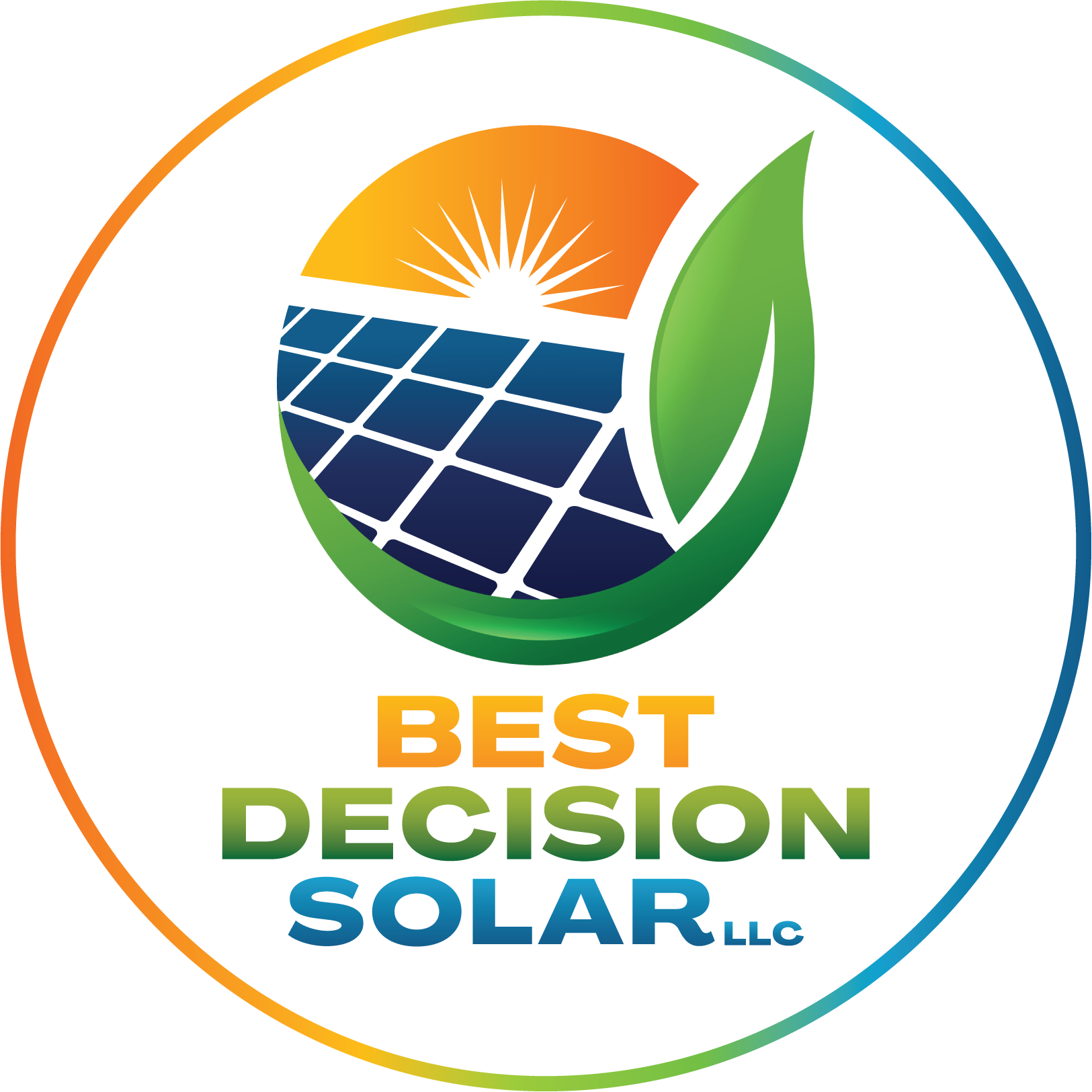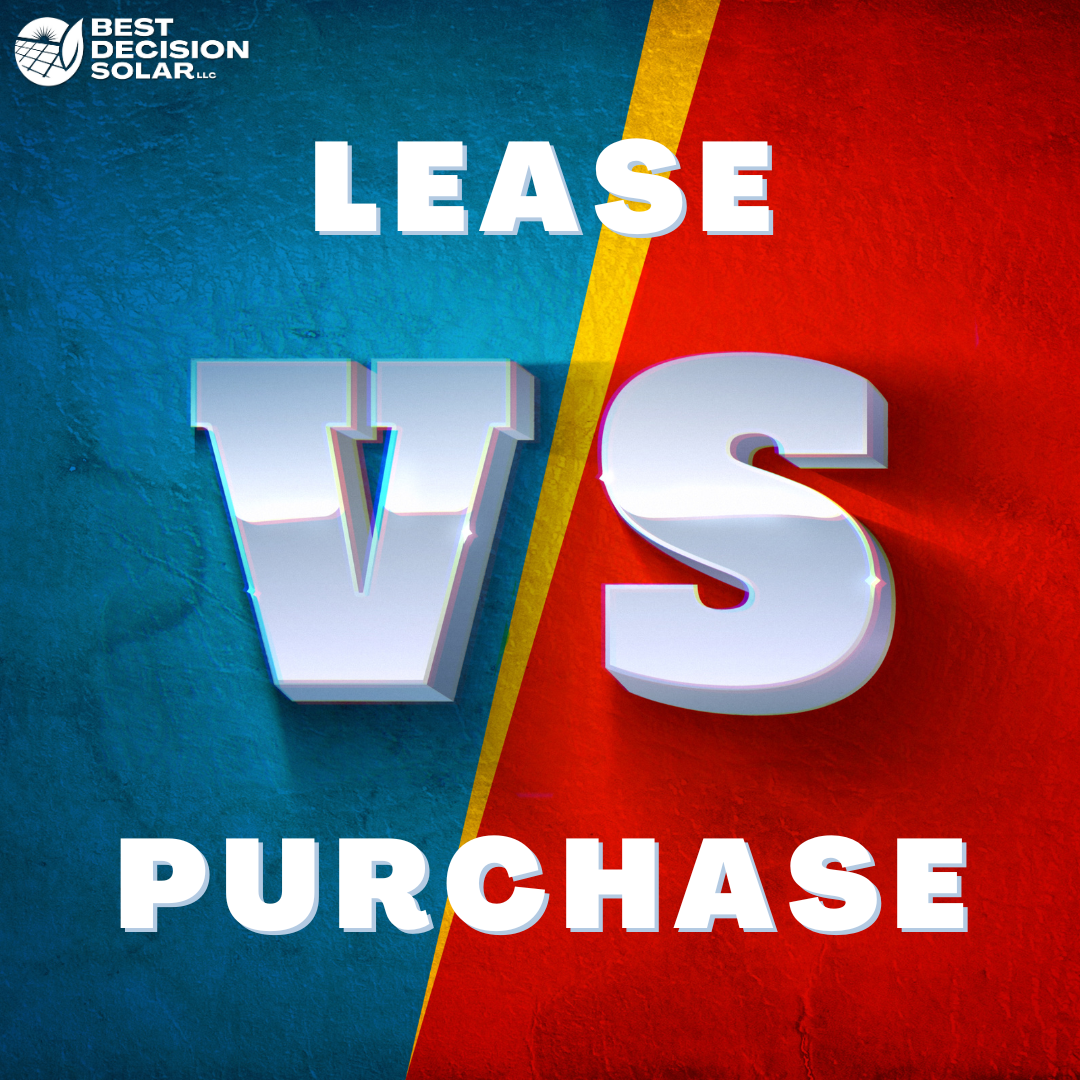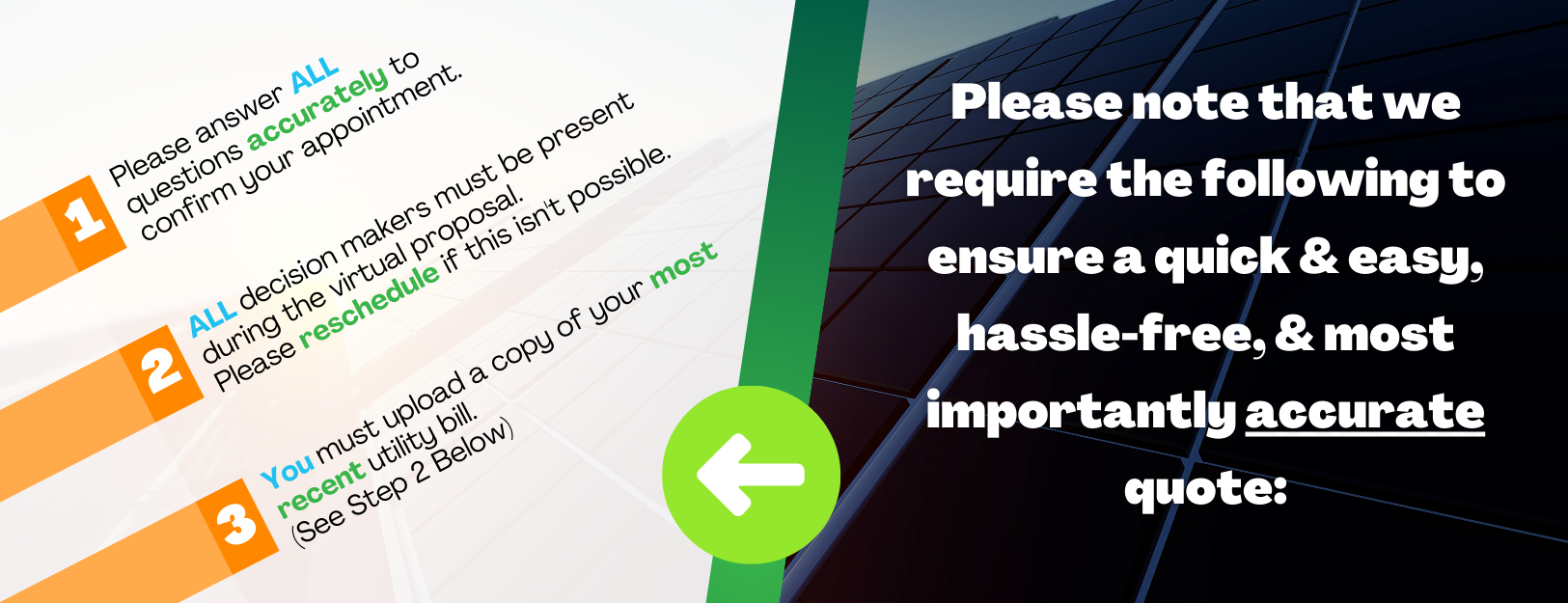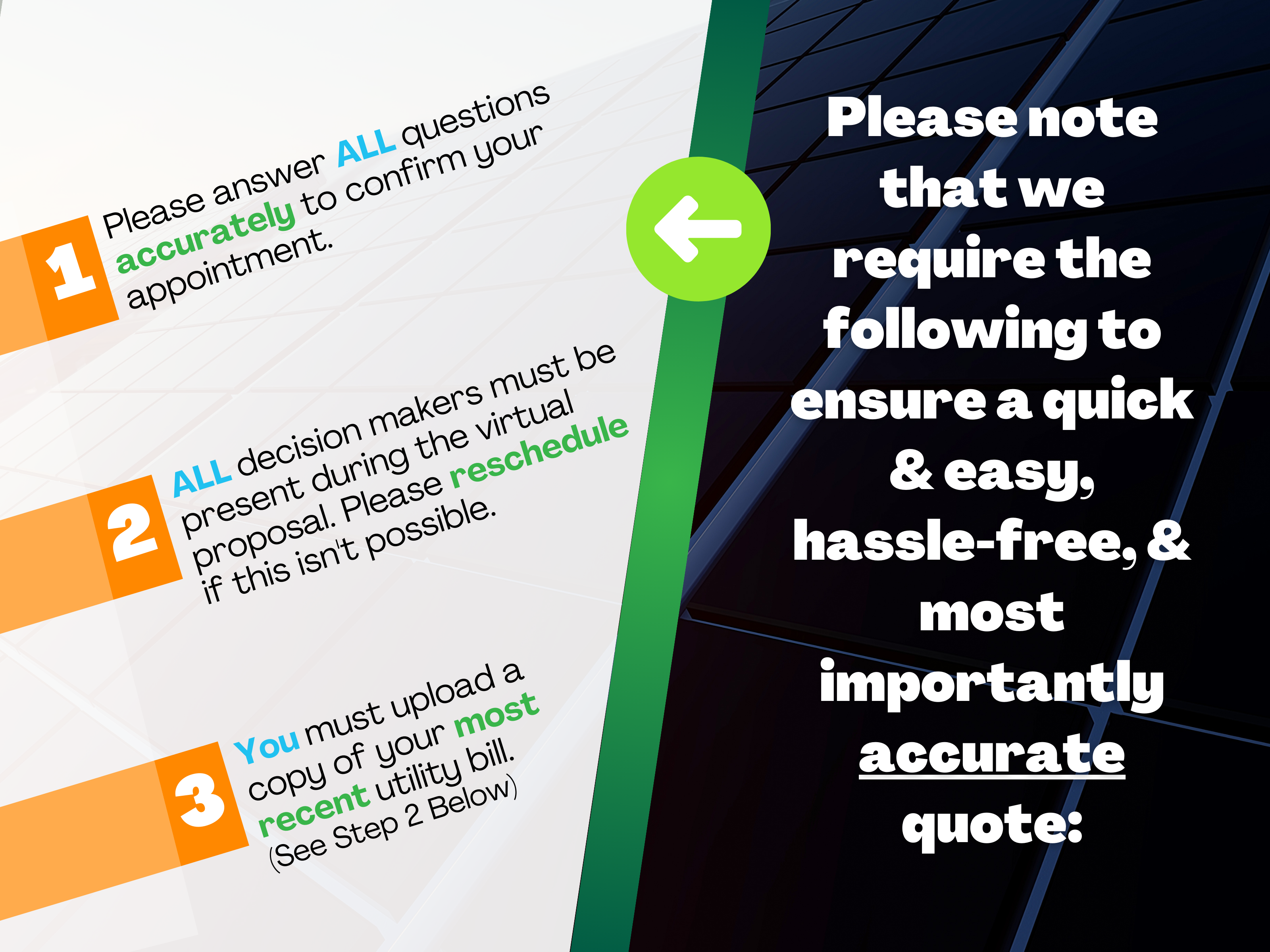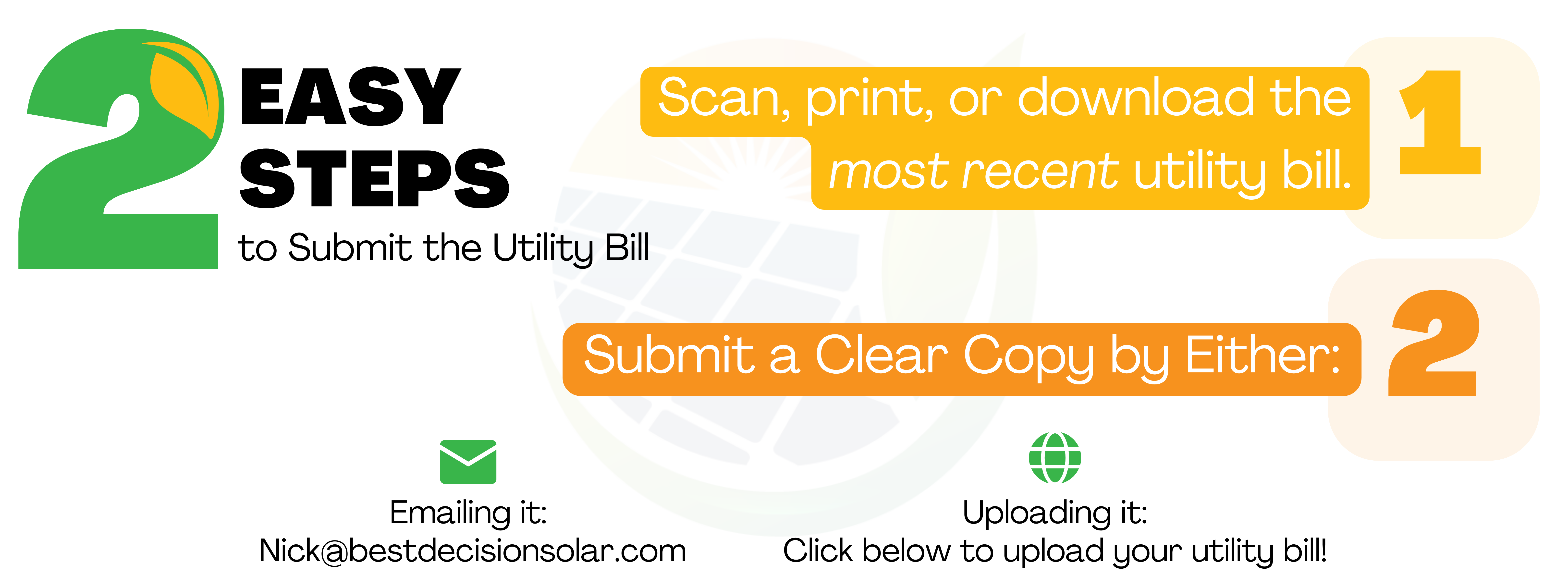If you are considering investing in solar, you should know the difference between purchasing and leasing.
Understanding the difference can help empower you as you get quotes and shop around. If a quote seems too low, it could be a lease proposal.
Always ask your solar salesperson if the quote is for a lease or a purchase. Learn more about the key differences below:
Ownership:
-
- Purchasing: When you buy solar panels, you become the owner of the system. This means you are responsible for the maintenance, repair, and any associated costs unless you invest with Best Decision Solar where you will get a FREE 30-year warranty that even covers your roof and labor! You also have the freedom to make decisions about the system, such as upgrading components or expanding its capacity.
- Leasing: When you lease solar panels, you do not own the system. Instead, you pay a fixed monthly fee to the solar provider for the right to use the panels and the electricity they generate. The solar company retains ownership and responsibility for maintenance and repairs for the duration of the lease. Once the lease is expired, the panels are removed.
Upfront Costs:
-
- Purchasing: Buying solar panels typically involves higher upfront costs. You need to pay for the panels, installation, and associated equipment, which can be a significant investment. However, there are tax incentives and many financing companies and banks that help homeowners gain energy independence with minimal to no up-front costs. At Best Decision Solar, we always strive to meet or beat your current average utility bill with your monthly payments so that your monthly budget remains unchanged.
- Leasing: Leasing requires little to no upfront cost, making it a more accessible option for those who may not have the capital for an outright purchase. More often than not, lease payments are lower than purchase payments.
Financial Benefits:
-
- Purchasing: The primary financial benefit of buying solar panels is that you can take advantage of various incentives, tax credits, and rebates offered by governments to encourage renewable energy adoption. Additionally, you can benefit from significant long-term savings on electricity bills since you own the system outright. With our free comprehensive warranty, we can guarantee that you will reap the benefits for at least 30 years! Additionally, an investment in solar can also be an investment in the value of your home.
- Leasing: While you may save on your electricity bills with a leased solar system, the financial benefits are usually not as substantial as purchasing. The solar provider typically retains any incentives or tax credits, and the savings you see on your electricity bills may be smaller than if you owned the system. Leased panels also add zero additional value to a home’s value and can even deter potential buyers.
System Performance and Maintenance:
-
- Purchasing: As the owner, you are responsible for the maintenance and upkeep of the solar panels. However, you also have control over the quality of the components and can choose reputable installers for better system performance.
- Leasing: The solar company retains responsibility for maintenance and repairs, which means you do not have to worry about any additional costs if something goes wrong with the system. However, you may have less control over the maintenance schedule and component choices.
Long-Term Considerations:
-
- Purchasing: Buying solar panels is a long-term investment that can provide a return on investment over time through energy savings and potential incentives. The system’s payback period varies depending on factors like electricity rates, solar system size, and available incentives. Most of our customers see the financial benefits within 30-60 days after the installation and connection!
- Leasing: Leasing may be a more attractive option for those who prefer short-term savings without a large upfront investment. However, in the long run, leasing may result in higher overall costs compared to purchasing, as you are essentially renting the system instead of owning it. While renting your energy at a fixed rate is still better than dealing with price increases from utility companies, it is still an indefinite expense whereas purchasing allows you to own your energy instead. Owning your energy allows you to become completely energy independent once the panels are paid in full.
Ultimately, the decision between leasing and purchasing solar panels depends on individual financial circumstances, preferences, and long-term goals. Both options have their advantages and disadvantages, so it’s essential to carefully evaluate the terms and financial implications before making a choice.
Why Rent When You Can Own?
Unless a customer really insists on leasing, we always recommend that our customers own their energy so they can enjoy the benefits for 30-plus years!
Learn more about the benefits of investing in solar here.
